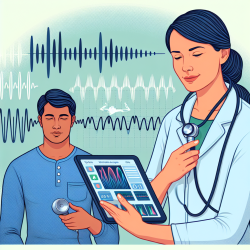Introduction
In today's digital age, the internet offers a vast array of resources that can be leveraged to promote health and wellness among students. The study titled "Web-Based Health Resources at US Colleges: Early Patterns and Missed Opportunities in Preventive Health" sheds light on how colleges are utilizing their websites to educate and promote health. This blog will explore how these findings can be applied to improve health outcomes in schools, particularly through online therapy services like those provided by TinyEYE.
Key Findings from the Study
The study conducted a cross-sectional analysis of websites from 426 US colleges and found that nearly 60% of these institutions provided health resources online. These resources included health information, links to external health resources, and interactive web-based health programs. Mental health and general health were the most common topics covered.
Despite the presence of these resources, the study identified several missed opportunities, particularly in areas such as tobacco use cessation, nutrition, and physical activity. These are critical areas for preventive health, yet they were underrepresented in the web-based offerings of many colleges.
Implications for Practitioners
For practitioners working in schools, these findings highlight the importance of leveraging web-based resources to enhance health education and promotion. Here are some actionable steps practitioners can take:
- Expand Mental Health Resources: Given the prominence of mental health resources in the study, practitioners should consider expanding these offerings. Interactive programs addressing stress, anxiety, and depression can be particularly effective.
- Address Missed Opportunities: Practitioners should focus on developing resources for tobacco use cessation, nutrition, and physical activity. These areas are crucial for preventing chronic diseases and promoting long-term health.
- Utilize Interactive Programs: Interactive web-based programs can engage students more effectively than static information. Consider incorporating assessments, quizzes, and interactive modules into your health resources.
- Collaborate with Health Professionals: Partnering with local health professionals or organizations can enhance the credibility and effectiveness of your web-based health resources.
Encouraging Further Research
The study underscores the need for further research into the effectiveness of web-based health resources in influencing health behaviors and outcomes. Practitioners are encouraged to contribute to this body of research by evaluating the impact of their online health programs and sharing their findings with the broader educational and health communities.
Conclusion
Web-based health resources offer a promising avenue for improving student health outcomes. By addressing current gaps and leveraging the strengths of digital platforms, practitioners can enhance their health promotion efforts and create positive, lasting impacts on student health.
To read the original research paper, please follow this link: Web-Based Health Resources at US Colleges: Early Patterns and Missed Opportunities in Preventive Health.










